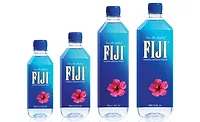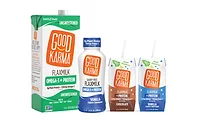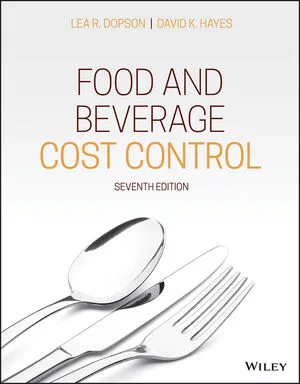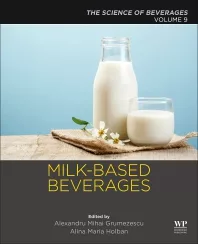Mintel releases 2019 Global Food and Drink Trends
Annual report addresses sustainability, healthy aging, premium convenience
Mintel, Chicago, announced three forward-looking trends that it predicts will lead the momentum of global food and drink innovation in 2019 and beyond.
2019 Global Food and Drink Trends at a glance
- Evergreen Consumption: A circular view of sustainability that spans the entire product lifecycle requires action from suppliers to consumers.
- Through the Ages: Food and drink will build on today’s dialogue about wellness and transition into more solutions for healthy ageing.
- Elevated Convenience: To match the premium expectations of consumers in the on-demand age, convenience food and drink will get an upgrade.
Looking ahead, Jenny Zegler, associate director for Mintel Food & Drink, discusses how issues of sustainability, health and wellness, and convenience will inspire formulation, packaging, marketing and more in the years to come:
“In 2019, support of and demand for more corporate sustainability programs will grow as consumers better understand what’s required to get closer to achieving a truly circular food and drink economy,” she said in a statement. “These sustainability efforts will include not only improving access to recycling, but creating products with ingredients that are grown in accordance to regenerative agriculture practices.
“Expect to also see food and drink manufacturers look to the beauty and personal care industry for inspiration for healthy ageing product development,” Zegler continues. “More food and drink will address longevity-related health concerns, be marketed with positive language that rejects terms like ‘anti-ageing’ for its negative connotations, and appeal across ages.
“Finally, we predict the rising segment of consumers who are often on-the-go, yet want to spend more time at home will increase demand for upscale, ‘speed scratch’ solutions and restaurant-quality, ready- to-consume products,” she continues. “As meal kits and foodservice-inspired beverages lead the way, there will also be more opportunities for brands to develop healthy, flavorful, customizable, and quick premium convenience products for breakfast, lunch, dinner, snacks and dessert occasions.”
More about the Food and Drink Trends
Evergreen Consumption: The definition of sustainability is extending to encompass the entire product lifecycle. From farm to retailer to fork to bin and, ideally, to rebirth as a new plant, ingredient, product or package, this 360-degree approach will ensure resources are kept in use for as long as possible. The movement toward circularity as the new sustainability will require collaboration between suppliers, manufacturers, governments, nonprofits, retailers and consumers.
A seismic shift in how consumers think about plastic is underway, with bio-based packaging materials set to be a key component to the next generation of responsible packaging. In 2019 and beyond, sustainability efforts will include not only improving access to recycling, but incentivizing consumers to recycle packaging and offering upcycled goods. At the same time, efforts to improve air pollution, support plant welfare, restore soil health and embrace regenerative agriculture will emerge as crucial elements of holistic sustainability programs that are important to companies and consumers alike.
Through the Ages: Preparing oneself for a longer, healthier lifespan is particularly relevant as consumers prioritize health and wellness as a holistic, proactive, and ongoing pursuit. Longer lifespans present significant opportunities for food and drink manufacturers to take inspiration from the beauty industry, which has successfully established a model for healthy ageing by designing proactive products that are marketed with positive language to people of all ages.
Specific to the world’s diverse senior populations, their needs can be addressed through food and drink for medical purposes, as well as products designed for prevention, with formulations that are nutritious, flavorful, and easy to consume. Yet, as humans are living longer, more food and drink can be formulated to address concerns from people of all ages about bone, joint, brain and eye health as well as other age-related health concerns.
Elevated Convenience: From breakfast to dinner, a new generation of modern convenience food and drink is emerging as manufacturers respond to rising healthy eating priorities, quests for foodie-inspired flavors, interests in personalization and competition from speedy delivery services. Looking ahead, a new wave of shortcuts will be available, offering new conveniences such as the expansion of individual meal kits sold at retail, foodservice-inspired packaged beverages, and a new generation of prepared meals, sides, and sauces that emulate the flavors and formats of restaurant meals.
Advancements in technology also will elevate the expectations of convenient food and drink options for consumers moving forward, whether it’s planning, shopping or preparation. Interest in premium convenience will not be limited to dinnertime, creating opportunities for every meal, snack, and beverage break.
Looking for a reprint of this article?
From high-res PDFs to custom plaques, order your copy today!








